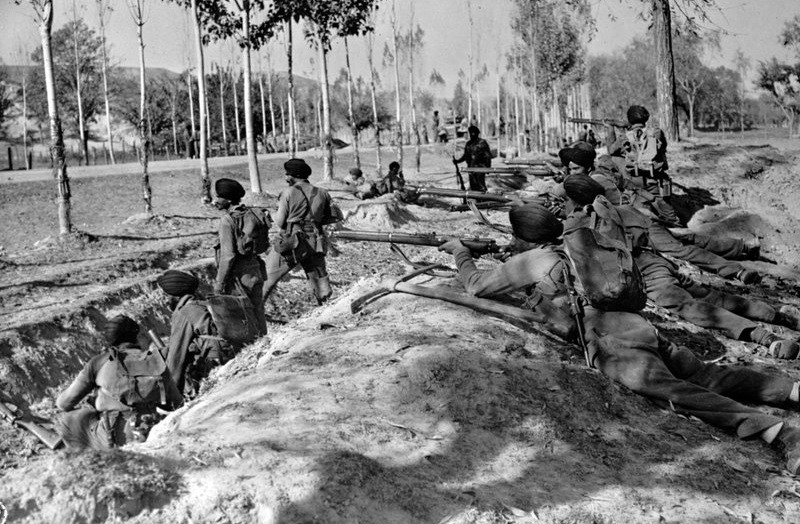Each year, October 27 is observed by the Kashmiris as a Black Day. On this day, in 1947, the Indian security forces had invaded the state of Jammu and Kashmir in violation of the Partition Plan, under which the British India was divided into India and Pakistan and the fate of this princely state, like several hundred others, was to be decided on the basis of the popular will.
At that time, India’s pretext for invading Kashmir was its unilateral claim of concluding an instrument of accession with the then princely ruler of the state, the Maharaja of Kashmir. However, as hostilities broke out, India itself took the Kashmir dispute to the United Nations Security Council.
In subsequent years, the Security Council passed several resolutions, which recommended the holding of a free and fair plebiscite to determine the Kashmiri aspirations for joining either India or Pakistan. Pending the final settlement, a ceasefire line, later renamed as the Line of Control, has hence forth divided the disputed territory between the two countries.
Unfortunately, despite initially pledging to hold this plebiscite, India later backed out of its international commitment, reigniting the fire in Kashmir and war with Pakistan in 1965. After waging another major war in 1971, India and Pakistan agreed to bilaterally resolve the dispute under the 1974 Simla Accord. Yet, until this day, neither the UN-supervised plebiscite nor any bilateral settlement on Kashmir has seen the light of the day, the blame for which lies squarely upon India.
Instead, what the Kashmiris have faced is a reign of terror at the hands of the same security forces, which had introduced violence in the peaceful valley of Kashmir back in 1947. Since 1989, when the current phase of Kashmiri resistance began after years of Indian betrayal, the people of Kashmir have paid a heavy price, with the international community doing nothing about their plight. India has been in total denial of the basic freedoms guaranteed by the Universal Declaration of Human Rights, and all international covenants guaranteeing human rights and civil liberties.
In the last over three decades, the conflict has led to frequent crises between India and Pakistan, becoming a nuclear flashpoint since the Kargil war of 1999. It has tragically claimed the lives of tens of thousands of Kashmiris, besides numerous instances of missing persons, mass graves, the gang rape of Kashmiri women in a wave of repression denoted by an unprecedented military presence, the application of barbaric laws, and other instruments of subjugation and torture. These instances are well documented by the world’s leading civil rights organizations, including India’s own National Human Rights Commission.
If this was not enough, since August 5, 2019, India has raised the stakes in Kashmir by annexing and dividing the internationally disputed region. Its subsequent lockdown and repression, especially the enforced demographic shift currently under way, have aggravated the humanitarian crisis. Hence, the Kashmiris are now faced with even a more dangerous situation. Virtually, every passing day marginalizes their political status and socio-economic space, in a land that belongs to them through history, race and religion.
A second consequence of India’s latest misadventure in the disputed territory is that Kashmir has once again emerged as a nuclear flashpoint, renewing tensions between India and Pakistan and pushing South Asia into yet another round of risky instability. And, at a time when international efforts to bring peace to the war-torn Afghanistan are seriously under way, the strife-torn region can ill afford to reignite the much older Indo-Pak conflict.
It is therefore extremely important that the world community should come into action sooner rather than later and try to resolve this lingering dispute having serious implications for regional stability and deadly humanitarian consequences.
The Kashmiri people simply want to live their lives as they want. Their demand for self-determination is not only morally right but also legally justified, under the UN Security Council resolutions. The mechanism of conflict resolution proposed under these resolutions is in perfect accord with the spirit of the Partition Plan. Kashmir will remain an unfinished chapter of 1947 until the wishes of the Kashmiri people are determined freely and impartially through a popular referendum or plebiscite.
Therefore, first and foremost, it is the responsibility of the UN to implement its resolutions on Kashmir. Until then, any attempt to change the demographic reality of the disputed territory will be illegal. Secondly, even though relations between India and Pakistan have deteriorated in recent years amid an unprecedented upsurge of Hindu nationalism across India, it is still in the pragmatic interests of both nations to resolve the Kashmir dispute bilaterally under the Simla Agreement.
Peace in Kashmir will be achieved when India, along with Pakistan, takes initiatives that contribute to the development and prosperity of South Asia. India must take a back step, reversing its previous attempt to change the political status of the disputed territory and subsequent effort to play with its demographic reality. However, the Kashmiris must be part of any bilateral settlement, just as their aspirations form the core of UN proposed resolution.
Given their long standing commitment to ensure the preservation of human rights in the world, the European nations have a particular obligation to ensure that all states remain committed to basic human rights and civil liberties; and that conflicts, where ever they are, must resolve amicably and peacefully in accordance with the UN Charter. Thus, with Kashmiri aspirations at the center, Europe must take the lead in both multilateral and bilateral spheres of Kashmir settlement, i.e. to implement the Security Council resolutions on the Kashmir dispute or mediate between India and Pakistan for its lasting settlement.


